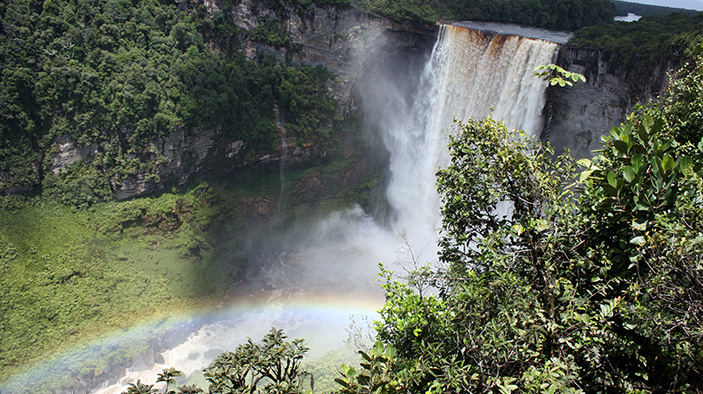Worldwide—Biodiversity Results and Integrated Development Gains Enhanced (BRIDGE)
Client: U.S. Agency for International Development
Duration: 2015-2020
Region: Worldwide
Country: Regional
Solutions: Environment
Integrating biodiversity conservation in development initiatives such as climate change adaptation and mitigation, democracy and governance, inclusive economic growth, food security, health, and trade, can create significant benefits for beneficiaries. There is, however, a widely held perception that successful conservation initiatives often only have local impact and are typically limited in their impact. Scaling up these benefits requires new approaches to programming that recognize not only how development projects can drive sound conservation, but also how conservation initiatives can improve development impact.
The DAI team pursued three main objectives on the BRIDGE project. First, the project built and expanded on the U.S. Agency for International Development (USAID)’s successful biodiversity integration efforts, as well identifying and addressing gaps in USAID staff’s ability to design and carry out programs that integrate biodiversity conservation into other sector initiatives. Second, BRIDGE designed and maintained knowledge management systems that enhanced access to sound, compelling, and useful data and evidence that support the drive for greater integration. Third, the project built a constituency of informed and committed staff “champions” who embraced and advanced biodiversity conservation in other sectors because they understood how these efforts reduce the risk of failure and enhance impact.

Sample Activities
- Facilitate cross-sectoral planning.
- Identify, assess, and apply effective tools, systems, and processes for cross-sectoral integration.
- Support and strengthen existing programs and integration initiatives.
- Improve the evidence base for biodiversity and development integration.
- Package knowledge to align with demonstrated needs.
- Collaborate with other partners, donors, nongovernmental organizations, and the private sector to improve outcomes through strategic partnerships and knowledge sharing.
Select Results
- Updated and revised Foreign Assistance Act sections 118/119 Tropical Forest and Biodiversity Analysis Best Practices Guide.
- Developed a series of evidence summaries and case studies highlighting the use of ecosystem-based adaptation to address climate vulnerability.
- Produced an evidence briefer on the contributions of wild fisheries to food security, nutrition, and economic growth in Africa.
- Generated case studies on institutional enabling conditions for integration in Mozambique and Honduras.
- Produced groundbreaking research on the intersections of forest cover conservation and human health with the Gund Institute, published in Science Advances.
RELATED CONTENT:
Haiti—USAID Water and Sanitation; Water Security and Systems Strengthening Activity (USAID Eau)
USAID Eau partners with multiple stakeholders—water utilities in larger towns and smaller water systems, regional water authorities, the national water authority, civil society organizations, and private entities—to transform the water sector by helping service providers develop and implement plans to expand coverage to all target areas, gain access to finance, and better manage water resources for resilient, sustained service delivery.
Read More